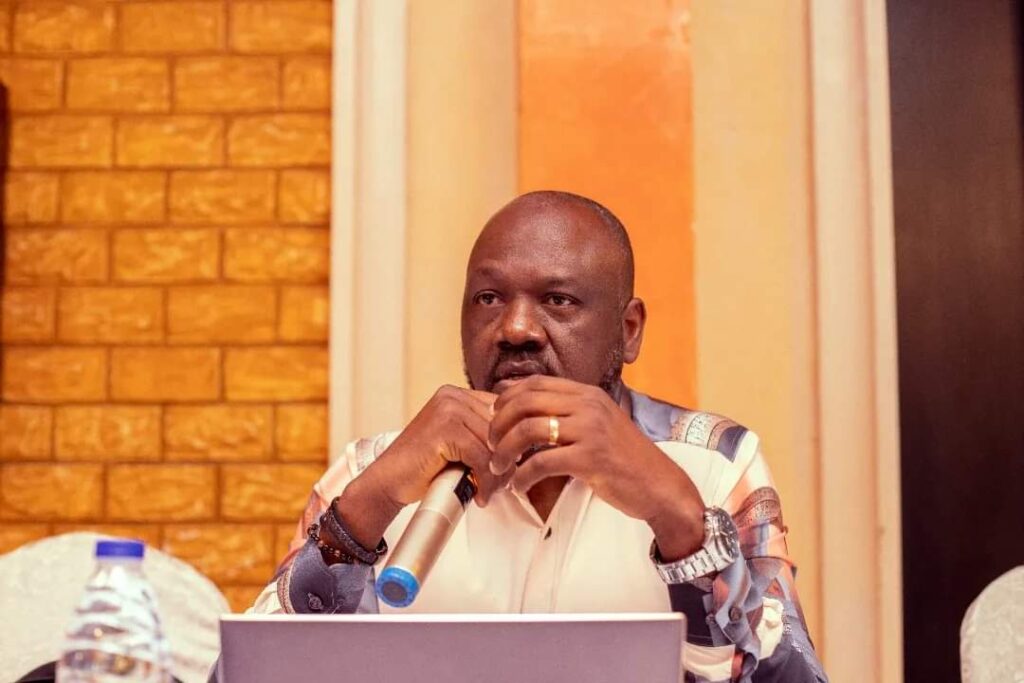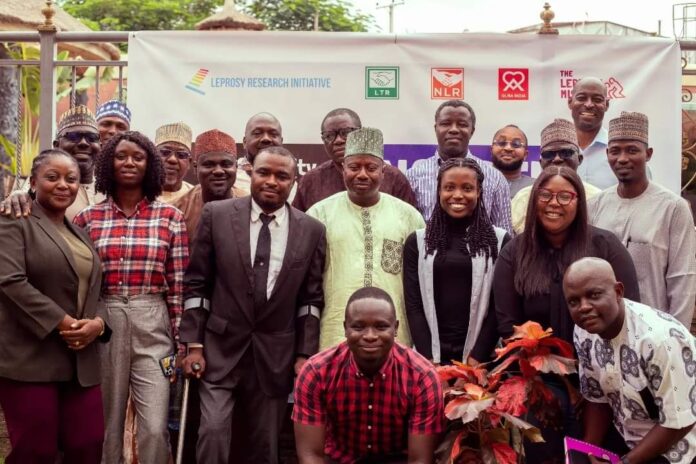Abuja, Nigeria – As the world edges closer to the ambitious goal of zero leprosy by 2030, the declining expertise in managing this ancient disease has become a pressing concern for the global health community. In response to this challenge, the CapaBLe research initiative (Capacity Building for Leprosy) was launched to bolster the fight against leprosy through innovative capacity-building measures. Funded by the Leprosy Research Initiative (LRI), this pivotal project is currently being piloted in India and Nigeria.

The CapaBLe research is a collaborative effort involving a multitude of stakeholders, including ILEP partners such as The Leprosy Mission Nigeria (TLMN), The Leprosy Mission Trust India, NLR, LTR, GLRA, IDEA, and the Federal Ministries of Health in both Nigeria and India. This ambitious project aims to evaluate and enhance the effectiveness of capacity-strengthening tools developed under the Lift Leprosy Learning (LLL) project of ILEP.
The official launch of the CapaBLe research took place on Tuesday, July 9th, 2024, at the prestigious Ibeto Hotels in Abuja, Nigeria. The inception meeting drew a significant gathering of stakeholders in leprosy and neglected tropical diseases (NTDs) from across Nigeria, demonstrating a united front in the battle against leprosy.
Among the distinguished attendees were the National Coordinator of the National Tuberculosis, Buruli Ulcer, and Leprosy Control Programme (NTBLCP) of the Federal Ministry of Health, Pharm Alhasan; Directors of Public Health; and State TBL Managers for Sokoto and Niger States, where the project is being piloted. The presence of the Executive Director of LTR, Dr. Tahir Dahiru, a representative of IDEA, and the National Director of TLMN, Dr. Sunday Udo, who also serves as the Principal Investigator of the CapaBLe research, underscored the high level of commitment and expertise backing this initiative.
In his keynote address, Pharm Alhasan highlighted the critical need for renewed focus and expertise in leprosy management. “Despite significant progress in reducing the prevalence of leprosy, the decline in specialized expertise threatens our ability to completely eliminate the disease. The CapaBLe research initiative is a timely and essential step in revitalizing our efforts and achieving our goal of zero leprosy by 2030,” he stated.
Dr. Sunday Udo, in his remarks, emphasized the innovative nature of the CapaBLe research. “This project is not just about evaluating tools; it’s about empowering our healthcare workers with the skills and knowledge they need to effectively manage and eventually eradicate leprosy. Our collaboration with international and local partners ensures that we are leveraging the best practices and expertise available,” he said.
The meeting also featured presentations and discussions on the tools and methodologies developed under the LLL project. Stakeholders reviewed various capacity-strengthening measures, including advanced diagnostic techniques, patient management protocols, and community engagement strategies. These tools are designed to enhance the capabilities of healthcare providers in identifying, treating, and managing leprosy cases effectively.
Dr. Tahir Dahiru, speaking on behalf of LTR, lauded the collaborative spirit of the initiative. “The CapaBLe research represents a model of partnership that is crucial for addressing complex health challenges. By combining our resources, expertise, and commitment, we can overcome the barriers that hinder the fight against leprosy,” he said.
A representative from IDEA highlighted the importance of community involvement in leprosy control efforts. “Engaging communities is essential for the success of any health intervention. The CapaBLe research not only focuses on healthcare providers but also on empowering communities to participate actively in leprosy control activities,” they noted.
The stakeholders at the event expressed unanimous support for the project and pledged their commitment to its objectives. The Directors of Public Health and State TBL Managers from Sokoto and Niger States shared insights into the local implementation plans, stressing the need for continuous training and support for healthcare workers at the grassroots level.
In closing, Dr. Udo reiterated the significance of the project in achieving the global target of zero leprosy. “The journey towards zero leprosy is challenging, but with initiatives like CapaBLe, we are making strategic strides towards our goal. We must remain vigilant, collaborative, and innovative in our approach,” he concluded.
The launch of the CapaBLe research marks a significant milestone in the global fight against leprosy. As the project progresses, it promises to bring renewed energy, expertise, and hope to the quest for a leprosy-free world. With the collective efforts of international and local partners, healthcare providers, and communities, the vision of zero leprosy by 2030 is not just a distant dream but an attainable reality.


